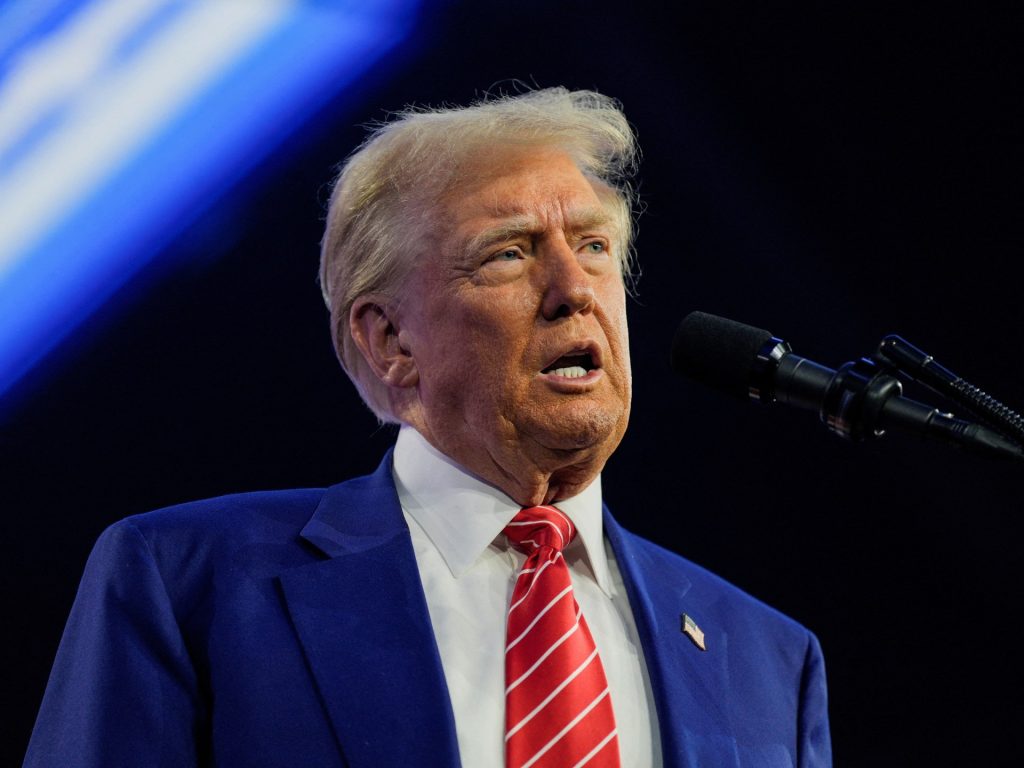BREAKINGBREAKING,
Trump had been convicted in May of 34 counts of falsifying business statements in relation to a hush-money payment.
United States President-elect Donald Trump is set to face a sentencing hearing for his criminal conviction in New York, mere days before he will be sworn in for a second term in the White House.
On Friday, Judge Juan Merchan issued an 18-page written decision calling for Trump to appear, either in person or virtually, on January 10 to receive his sentence.
Merchan also denied Trump’s bid to dismiss his conviction on 34 counts of falsifying business records in relation to a hush-money payment made during his 2016 presidential campaign.
Trump had pushed to have the conviction overturned, in light of his successful bid for re-election in November’s presidential race. His inauguration ceremony is scheduled for January 20, a mere 10 days after the upcoming hearing.
“Finding no legal impediment to sentencing and recognizing that Presidential immunity will likely attach once Defendant takes his Oath of Office, it is incumbent upon this Court to set this matter down for the imposition of sentence prior to January 20, 2025,” Judge Merchan wrote.
He added that he does not intend to impose a jail sentence in the case.
Instead, he indicated that he was considering a sentence of “unconditional discharge” as the “most viable solution to ensure finality”. That sentence would avoid the imposition of a punishment, including imprisonment or fines.
Trump has been enmeshed in multiple legal cases since his first term in office concluded in January 2021.
Among them were four criminal indictments: one for concealing classified documents while out of office, two for attempting to overturn the 2020 election and a fourth for the hush-money payment.
The hush-money case centred on $130,000 paid to the adult film performer Stormy Daniels after she alleged she and Trump had an affair.
Prosecutors successfully argued that Trump attempted to cover up the payment, made through his former lawyer Michael Cohen, in order to avoid damaging press during the 2016 election season.
The connection to the election heightened the legal jeopardy: Normally, falsifying business records is only a misdemeanour offense, but it can become a felony if “the intent to defraud” is connected to another possible crime.
Trump ultimately won the 2016 race. In May, he was found guilty on all 34 counts of falsifying business records. The hush-money case was the only one of the four indictments to reach trial and achieve a conviction.
With Trump slated to take office once more, the fate of the cases against him have become more and more uncertain.
Jack Smith, the special counsel appointed to lead the two federal cases against Trump, asked the judges involved to dismiss the charges in November.
He explained that his decision was “not based on the merits or strength of the case” but rather on Trump’s return to the White House.
Come January 20, Trump will be in charge of the Justice Department, the federal law enforcement agency that appointed Smith. The special counsel has said he will resign before then.
A state-level criminal indictment in Georgia, meanwhile, remains mired in appeals and roadblocks. In December, an appeals court ruled that Fulton County District Attorney Fani Willis could not longer lead the case, adding a further level of uncertainty about its future.
An additional hurdle cropped up in July, when the conservative-leaning Supreme Court issued a broad ruling on presidential immunity. While the court rejected Trump’s claim to “absolute” immunity, it did expand the notion of presidential immunity beyond the role’s constitutional authority.
Anything that could be considered an “official” act of the president fell under “presumptive immunity”, the court declared.

